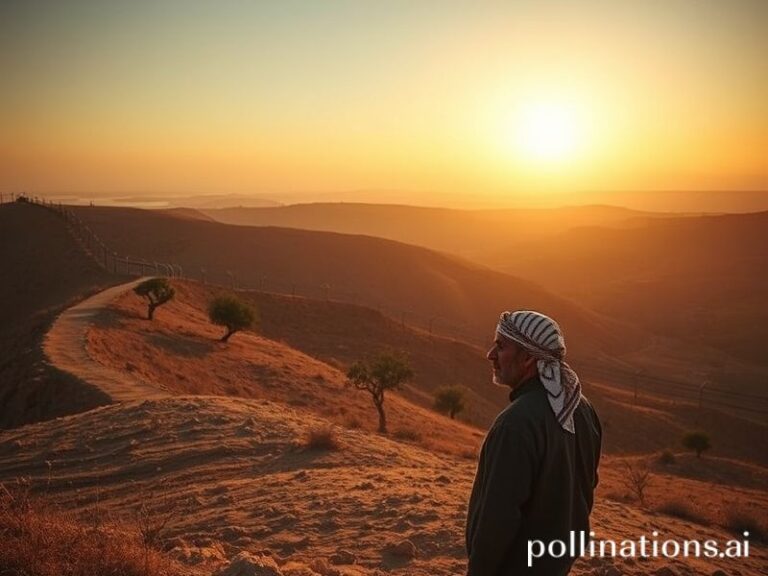Vaccines Without Borders: How a 0.3ml Jab Became the Planet’s Most Explosive Geopolitical Mic Drop
A Shot Heard ’Round the World: How a Needle the Size of a Housefly Became the Planet’s Most Contested Diplomatic Weapon
Dave’s Locker | International Desk
PARIS—It takes about 1.2 seconds to inject 0.3 millilitres of Pfizer-BioNTech into a deltoid, yet the global reverberations from that blink-and-you-miss-it act have kept ambassadors up later than any diplomatic reception ever could. From the marble corridors of Geneva to the tin-roof clinics of Kinshasa, the humble vaccination has completed its unlikely transformation from public-health footnote to geostrategic currency, moral litmus test, and pop-culture punchline all at once.
Consider the optics: two years after the first COVID-19 vaccines rolled out, the world has managed to administer roughly 13.5 billion doses—enough to inoculate every adult on Earth twice, with a few hundred million left over for your cousin’s conspiracy podcast. And yet, in a masterclass of human coordination, we have simultaneously achieved both surplus and scarcity: refrigerated mountains of expiring doses in Toronto suburbs, while Harare hospitals post “Sorry, No Vaccines Today, Try Manifesting Immunity.” The WHO calls it “vaccine apartheid”; the rest of us call it Tuesday.
Western governments, fresh from hoarding vials like toilet paper circa March 2020, are now desperately off-loading expiring stock before Twitter notices the hypocrisy. The Biden administration, under the banner of “donating,” recently air-dropped 4.7 million pediatric doses on Paraguay—coincidentally one month after the FDA quietly extended their shelf life by four weeks. Nothing says altruism like a glorified expiration-date extension disguised as charity. Meanwhile, China’s Sinovac and Russia’s Sputnik V have become Belt-and-Road bargaining chips: sign here for a new highway, initial there for 800,000 doses, and please ignore the 14% efficacy against Delta.
In the EU, Brussels is attempting to retroactively brand its sluggish rollout as “deliberate caution,” which is a bit like calling a missed train “mindful commuting.” France now fines café patrons who can’t produce a pass sanitaire, while Germany offers bratwurst incentives—proof that guilt and pork remain the country’s most reliable motivators. Down in Australia, the Army was deployed to Sydney’s western suburbs to “assist” with jabs; the optics of soldiers escorting citizens to medical appointments were, apparently, less alarming than letting Delta run free.
The Global South, ever the stage for other people’s moral theatre, has responded with a cocktail of gratitude and gritted teeth. Rwanda achieved 70% coverage faster than most of Western Europe, largely by skipping the luxury of online debate and just, well, vaccinating people. Ghana’s drone-delivered doses have become TikTok catnip: watch a flying robot drop lifesaving science into a village that still lacks reliable Wi-Fi. And Brazil, never one to miss a telenovela twist, elected to mix-and-match vaccines in defiance of manufacturer instructions, thereby producing the world’s most immunologically confused—but surprisingly well-protected—population.
Side effects include more than myocarditis. Entire economies have been reshuffled: tourism-dependent nations now market “vaccine vacations,” where sunburned Europeans pay for the privilege of getting jabbed on a Cancún beach—because nothing says “holiday” like a needle in paradise administered by a nurse wearing hotel-branded scrubs. Cryptocurrencies briefly spiked on rumours of “vaccine passports on the blockchain,” a solution in search of a problem since 2017. And somewhere in Silicon Valley, a startup is no doubt pitching an NFT of your antibody levels.
Yet beneath the cynicism lies a stubborn, inconvenient fact: smallpox is gone, polio limps on one continent, and COVID-19 is slowly being demoted from existential horror to seasonal nuisance. The vaccines that trigger Twitter flame wars have also allowed grandparents in Mumbai to meet newborns in Melbourne without a two-week quarantine in a soulless airport hotel. That’s the gag, dear reader: the same species that weaponises syringes for diplomatic point-scoring also uses them to save one another—occasionally by accident.
So here we are, trapped between our best and worst impulses, stabbing ourselves toward a future we can’t quite believe in. As booster campaigns roll out with the fervour of Black Friday sales, remember that every prick in the arm is both an act of solidarity and an admission that we’d rather argue on Facebook than fix global supply chains. The shot heard ’round the world, it turns out, is less a bang than a resigned sigh—delivered 0.3 millilitres at a time.







